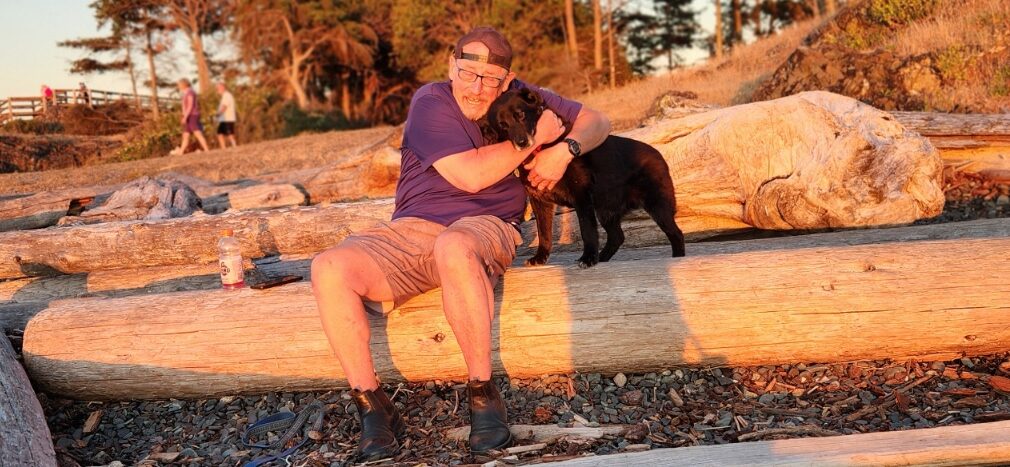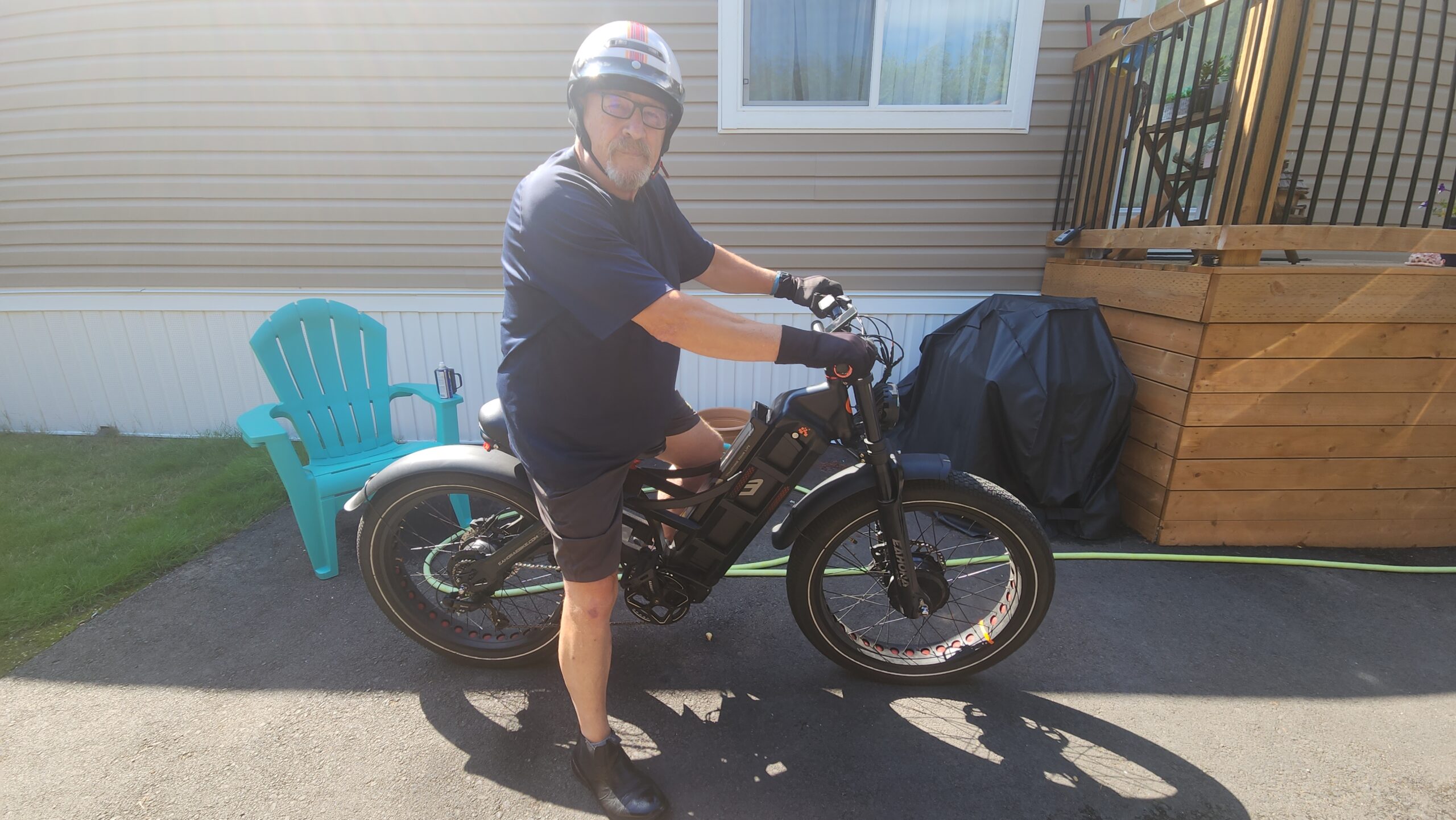“Motion is the lotion” has long been Ross McGaw’s motto. The son of a lighthouse keeper, Ross grew up by the sea on the Isle of Man in the United Kingdom but called Whistler home for 35 years with his wife, Linda. Ross began his career in 1975 as a high school teacher of physical education and biology, but soon discovered his talent for sales, leading to a successful career as a salesman, sales manager, and later a realtor. Along the way, he expanded his expertise by doing marketing for a heli-ski company and managing a helicopter company, during which he survived a helicopter crash in the mountains and endured the tragic loss of a close friend in a heli-skiing accident, experiences that profoundly shaped his character and outlook on life.

During their time in Whistler, the couple were very passionate about skiing, with Linda being a full-time ski instructor. In fact, it was during one of their skiing outings that they noticed something was different about how Ross’ body moved: he could turn in one direction, but not the other.
At first, they thought his difficulties were physical. When their children pointed out a limp on Ross’ left side, he went to a sports medicine doctor in Whistler. Through a gradual process of elimination, all potential physical causes were ruled out through numerous CT scans and MRIs. While some issues with his back initially appeared to be the root cause, a spinal neurosurgeon later confirmed they were not the primary source of the problem. This led to the exploration of neurological causes, where a neurologist suspected symptoms of a Parkinsonian nature, which was later definitively confirmed by a clear brain scan.

The diagnosis of Parkinson’s disease (PD) came as quite a surprise to the lifelong athlete. However, the support of his wife and children helped him to ride through the initial shock. Linda says Ross took the news with incredible calm, acceptance, and courage. Embracing the philosophy of “it is what it is,” they chose to focus on living fully with the hand they were dealt. Their two grown children, deeply bonded with their father, along with their supportive life partners, rallied around Ross with love and understanding. In particular, their daughter, a registered nurse, has been able to provide very valuable practical advice.
After many years in Whistler, Ross needed a change from the frantic pace of mountain life, so the couple relocated to Nanaimo. Being by the sea brought Ross back to his roots and filled his days with a renewed sense of peace and contentment.
Ross has always loved sports, especially soccer and golf, but is no longer able to participate in these activities due to his Parkinson’s, so he looked for other ways to stay active. Having previously competed in mountain biking at an amateur adult racing level, the discovery of e-bikes was a game-changer for Ross, as it offered him a new way to keep biking.

Ross began biking on his e-bike on January 19 of this year, and by September 2, he had ridden 222 consecutive days with no breaks, with an average speed of 40.8 km/h, and a personal best ride of 96 kilometres in exactly two hours, averaging a blazing 48 km/h. Ross’ typical daily ride covers 67.6 kilometres. Most impressively, he has covered a total of 15,000 kilometres since he began.

His commitment to exercise has had measurable cognitive benefits. When first diagnosed in 2016, Ross’ MoCA (Montreal Cognitive Assessment) test score was 22/30, indicative of Parkinsonism and mild cognitive impairment. Remarkably, through consistent exercise, his scores have improved annually, reaching a perfect 30/30 in 2024, despite the fact that his speech issues led some neurologists to incorrectly underestimate his mental capacity.
For others on similar journeys, Ross encourages incorporating exercise into daily life as a powerful tool for managing Parkinson’s. Despite the significant challenges he faces – spending more time in “off” periods than “on” most days and dealing with severe neuropathy that limits his bike rides to a maximum of two hours – he finds staying active provides both physical and mental benefits. Ross acknowledges the unpredictability of his condition, noting that if he’s caught in an “off” period while biking, he sometimes has to dismount to avoid falling. Still, he firmly believes in the value of consistent effort, saying, “Only you can motivate yourself. There is no magic pill.”
Ross and Linda want others to know that Parkinson’s symptoms are not cookie-cutter, but may be very different for everyone. Despite tremor being the most associated symptom with the disease, Ross reminds us that not everyone gets it – he has never had a tremor throughout the course of his illness. Linda also mentions that PD need not be confining and that even though life can throw a curve ball at you at any time, those with Parkinson’s disease can be incredibly inspirational for all.

